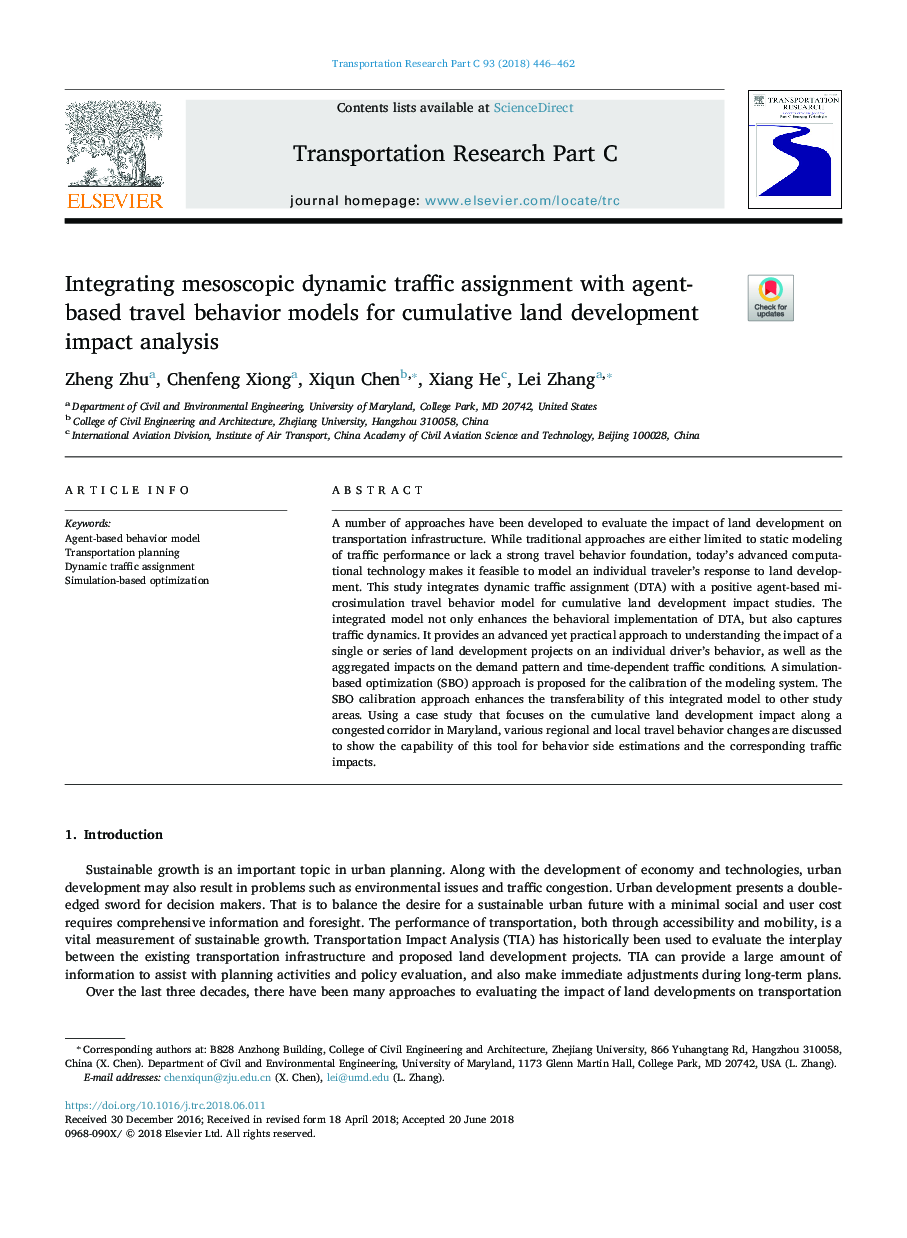| Article ID | Journal | Published Year | Pages | File Type |
|---|---|---|---|---|
| 6935785 | Transportation Research Part C: Emerging Technologies | 2018 | 17 Pages |
Abstract
A number of approaches have been developed to evaluate the impact of land development on transportation infrastructure. While traditional approaches are either limited to static modeling of traffic performance or lack a strong travel behavior foundation, today's advanced computational technology makes it feasible to model an individual traveler's response to land development. This study integrates dynamic traffic assignment (DTA) with a positive agent-based microsimulation travel behavior model for cumulative land development impact studies. The integrated model not only enhances the behavioral implementation of DTA, but also captures traffic dynamics. It provides an advanced yet practical approach to understanding the impact of a single or series of land development projects on an individual driver's behavior, as well as the aggregated impacts on the demand pattern and time-dependent traffic conditions. A simulation-based optimization (SBO) approach is proposed for the calibration of the modeling system. The SBO calibration approach enhances the transferability of this integrated model to other study areas. Using a case study that focuses on the cumulative land development impact along a congested corridor in Maryland, various regional and local travel behavior changes are discussed to show the capability of this tool for behavior side estimations and the corresponding traffic impacts.
Related Topics
Physical Sciences and Engineering
Computer Science
Computer Science Applications
Authors
Zheng Zhu, Chenfeng Xiong, Xiqun Chen, Xiang He, Lei Zhang,
